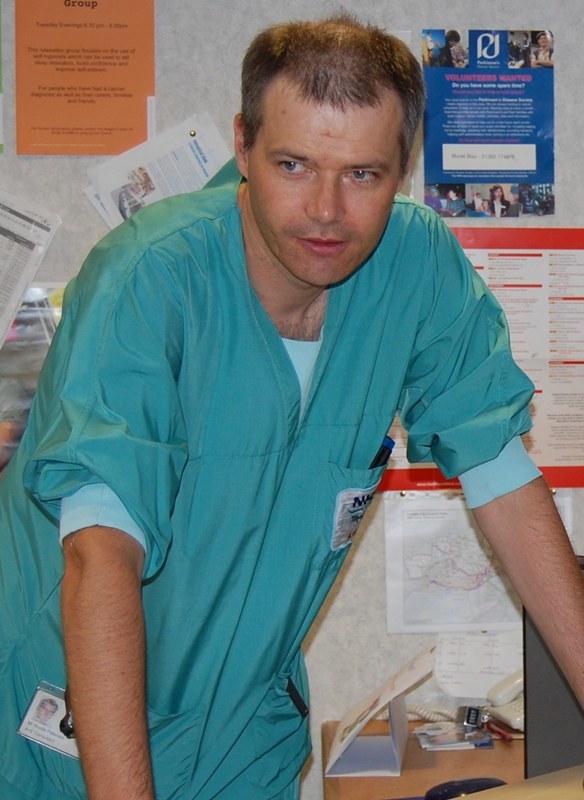If you were dying and only an organ donation could save you, the fact only one in four people bother to register would be the most important and depressing statistic in your life. As National Transplant Week begins, Jack McKeown looks at the easiest way we can save people’s lives.
One of the many ethical minefields surrounding the issue was cleared up last year.
“Do you keep a patient alive purely for donor reasons? Let’s say you have a person who’s fallen off their quad bike and suffered massive head trauma. They are not going to survive their injuries. The best thing to do for them is not treat them, keep them warm and comfortable, and they will die very quickly.
“But if someone carries a donor card, do we treat them and try to keep them alive until the donor retrieval team can arrive from Edinburgh or Glasgow? Organs perish very quickly after death. So what is in the patient’s best interests?
“That has now been resolved, and it’s decided that if it is their wish and their family’s wish, we will try to keep them alive for a few hours so that their wish to become an organ donor can be realised.
“The cases we focused on were people who have unsurvivable brain injuries. Someone who fell off a quad bike and wasn’t wearing a helmet. We’re talking about massive brain trauma that is not survivable.”
Losing a family member is traumatic, but Brodie says donating an organ can make relatives feel their loved one did not die in vain.
“If the relatives say no then they are buried or cremated with their organs inside them. If they donate, then part of them lives on.”
Arlene Kennedy can vouch for the silver lining this knowledge can bring to the grieving process. The 39-year-old is a nurse in the A&E department of Perth Royal Infirmary. Her mother Evelyn Stewart died of a cerebral aneurysm in 1990, when she was 45.
“It happened quite suddenly,” Arlene said. “She collapsed on the Tuesday but at that time it took 24 hours for a brain scan so she didn’t have surgery until the Wednesday. Initially the neurosurgeon only asked if we thought she would want to donate her kidneys, because that was the only organ there was a need for in Dundee.
“We said she was a donor card carrier and her wish had always been to give her organs. Then Fiona Jack, who was the transplant coordinator then, came in and found recipients.”
Five people lived thanks to Evelyn Stewart’s selflessness.
“She’s still struggling to come to terms with what happened and it’s hard for her to make a rational decision about organ donation.”
This raises the question of whether consent for donation should be presumed if you don’t want to donate you have to register, otherwise the assumption is that you will.
Simple as it sounds, Brodie doesn’t think the issue can be solved by a change in the law.
“Austria has an opt-out system, but it’s a ‘soft’ opt-out. Doctors still ask the family for permission, so the results are not much different. In countries that have tried systems where the organs are taken regardless of the wishes of the relatives, trust has broken down completely between relatives and doctors.”
A typical cardiac victim might donate an average of three organs, whereas a head trauma victim could donate four including the heart.
“These organs save the lives of young people whose heart or liver have failed. Because your loved one donated their organs, a young mother with two children gets to live to see them grow up. It’s an amazing difference you can make to people’s lives.
“And even if the organ doesn’t directly save a person’s life, it improves it dramatically. The kidney transplant recipient may not have had their life saved, but they’re not going to hospital for dialysis four times a week and feeling tired the rest of the time.
“Someone who receives corneas wasn’t going to die, but instead of seeing the world through greaseproof paper they’ll have good eyesight.”
